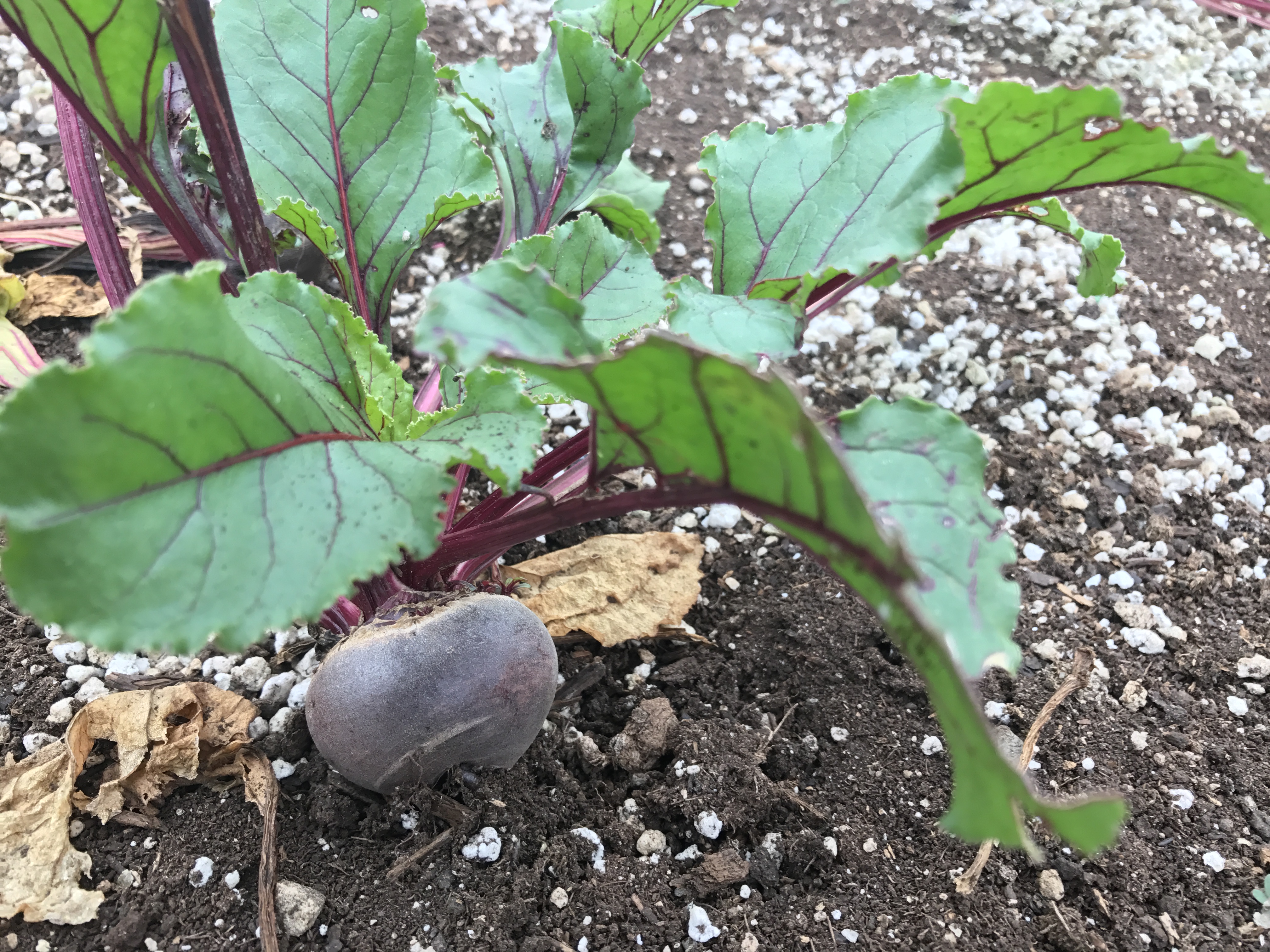By Sarah LeVesque, Recent ASU Nutrition Student
Beta vulgaris!
Almost sounds like a spell in a whimsical film on sorcerers. But it won’t make beets appear on your plate. If it did, you’d be filling your plate with vital nutrients and fiber! It’s an intimidating vegetable in the produce section. If you get past its looks, beetroots can offer many health benefits. They’re high in inorganic nitrates, consist mostly of water, and have been studied for its impact on athletic stamina. If you’ve never cooked beets before and want to try them, don’t worry! Now in the grocery sections, they offer precooked beets. I usually grab a pack (about 4-5 beets) and add them to salads throughout the week.

My best advice to anyone who wants to try boiling beets at home is don’t skin them! Leaving the skin and an inch of the stem prevents bleeding, flavor loss, and keeps your fingers from turning beetroot red! When they’re done boiling, the skin comes off easier too.
Also, don’t throw out those greens! A cup of raw beet greens contains lutein and zeaxanthin, which are types of carotenoid phytonutrients that keep our eyes healthy and our vision sharp throughout our lives.
Beets are packed with nutrients!
Beets are in season winter, summer, and fall. Just one cup of cooked beets is less than 60 calories. Vitamin A, C, D, E, and K are all found in beets. Beets also offer B vitamins: B1, B2, B3, B5, B6, and B12. That’s a lot of B’s and an effortless way to remember what beets offer!
Beets are also very good sources of manganese, potassium, and copper. Manganese is an essential mineral. It plays a role in the digestion of cholesterols, carbohydrates, and proteins. It’s also involved in bone production. Potassium is an electrolyte that helps maintain blood pressure, nerve function, and muscle contraction. Copper is important for iron absorption and works with iron to form red blood cells. Copper and manganese are important cofactors for antioxidants also.
So adding beets to your plate will get you full and full of nutrients.
As if these little beets couldn’t offer anymore, they are also host to good sources of fiber, magnesium, phosphorus, vitamin C, iron, and vitamin B6. Fiber helps keep blood sugar levels in check, lowers cholesterol levels, aids digestion, and can also help you stay fuller longer. Magnesium is important because it’s involved in many reactions in our bodies. From creating new proteins from amino acids to helping repair DNA and RNA, magnesium is a helper molecule! Magnesium has also been studied as a booster in exercise performance, fighter against depression, and can help fight migraines.
Beets are excellent sources of folate. It’s an important B vitamin for women who are pregnant as it has been shown to reduce the risk of birth defects. It is also an important vitamin for cellular function and tissue growth.
Plant Compounds in Beets
Betanin is responsible for the color of beets. It’s been studied for its possible health benefits. It’s an exceptional antioxidant because of its electro donating abilities. It also exhibits anti-inflammatory properties.
Beets are high in inorganic nitrates. Nitrates have been in the spotlight for its health risks but studies have shown that the benefits do outweigh the risks when it comes to eating our vegetables. Research has shown that beets and beetroot juice actually help lower blood pressure. Nitrates are also being studied for its ability to enhance physical performance. Nitrates help our mitochondria be more efficient, helping us out during high intensity and endurance exercises.
Beetroots are power vegetables. They help lower blood pressure, can increase your exercise performance and are packed with nutrients that our bodies need. Even the beet greens are good for you! Beets are great on salads, as a soup, and as a juice. There is even makeup that uses the beetroot red color, which isn’t doubtful since it stains!
I bet it’s been a while since you’ve had them in your kitchen! Add some variety, try something new, and fill your plate with beets. They’re good for you!
Most importantly our Arizona Farmers grow lots of these wonderful beets!
For awesome recipes for beets check out this Fill Your Plate recipe section! You can also locate where beets are locally sold in Arizona on the Fill Your Plate website!


One Response to Filling Your Plate With Beets